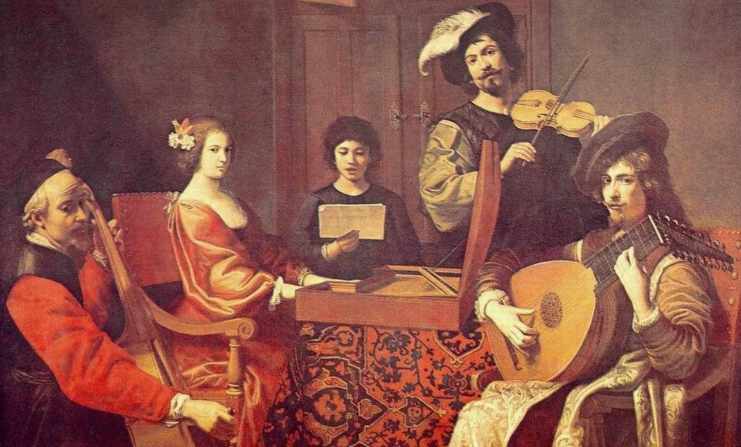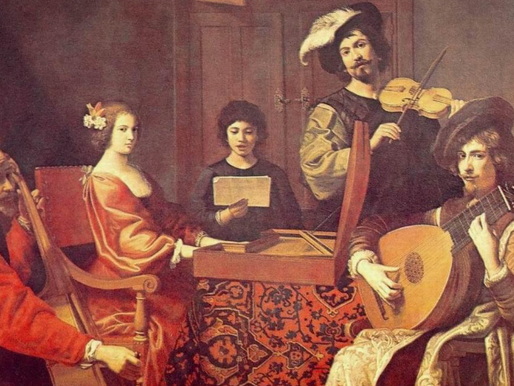Uncategorized
Developments in Music
Developments in Music
Over the past weeks I have been rehearsing some new (or very old) music with colleagues. Most recently a sonata by Sammartini written in the 17th century. Avelino who is a real expert experienced with early music had found it and we started to work on it for an upcoming concert. The music is very nice with harmonies I only thought existed in the Romantic period and after but there was a real expressive use of chords and suspensions with 7ths, 9ths. The kind of chords you would expect to hear about in the modern or jazz age was really nothing new in the early Baroque period.
The tuning was set lower in this time (around 415Hz). Now we use 440-444Hz. It can sound very different yet somehow still in tune- by about a semitone.When I was rehearsing I had retuned my violin to make it possible to play. Because of having perfect pitch this was a challenge as I expected to heat a B natural when I was hearing a B flat. I had to continue playing as I normally would but get used to the lower sound. There came a point where we finished and I tuned the violin back to normal. We began practicing the piece one more time. Of course it didn’t work now as we was a semitone apart out of tune. So I took the B minor piece and was transposing it to B flat minor instead!
Having listened and played Baroque and Classical period music, we can see a lot of similarities behind chord progressions that went through to the Romantic period. Baroque quite often can be more complex than the Romantic period which quite often uses melodies with slightly more ‘simpler’ accompaniment behind it. The 20th century saw a lot of experimentation from Debussy and Ravel to Shostakovich and Prokofiev. Although the music doesn’t follow the same conventions, they still sound atmospheric, imaginative and musical in their own way. It could get tiresome if music stuck to the same rules for 400 years. There are only so many combinations before we see the same ideas being repeated so a variety is always welcome.

If you want to know more about European tunning, you can find it on one of our articles:
,https://www.piano-composer-teacher-london.co.uk/post/a-brief-story-of-european-tuning
#adultpianolessons #pianoteacherslondon #pianolessonsLondon #musiclessonslondon #musicteachers

